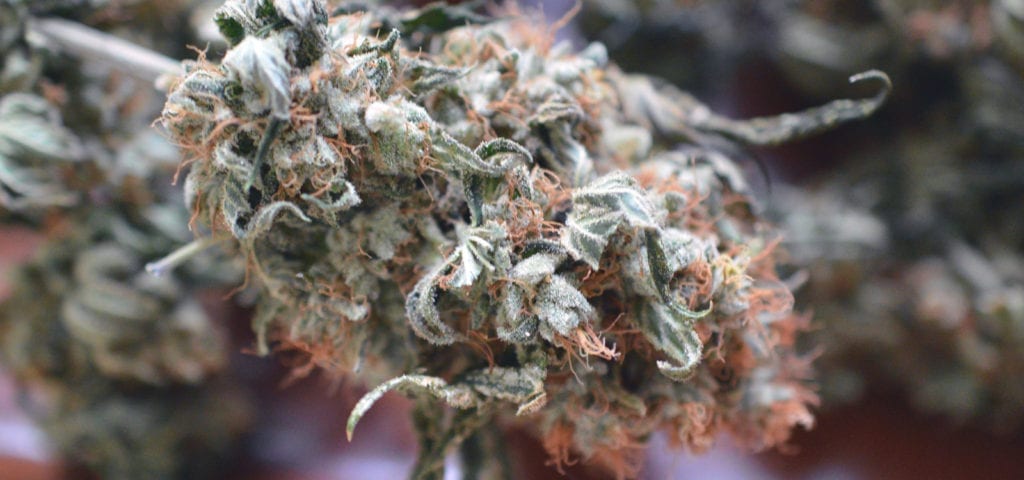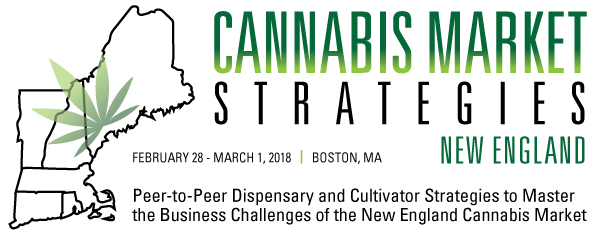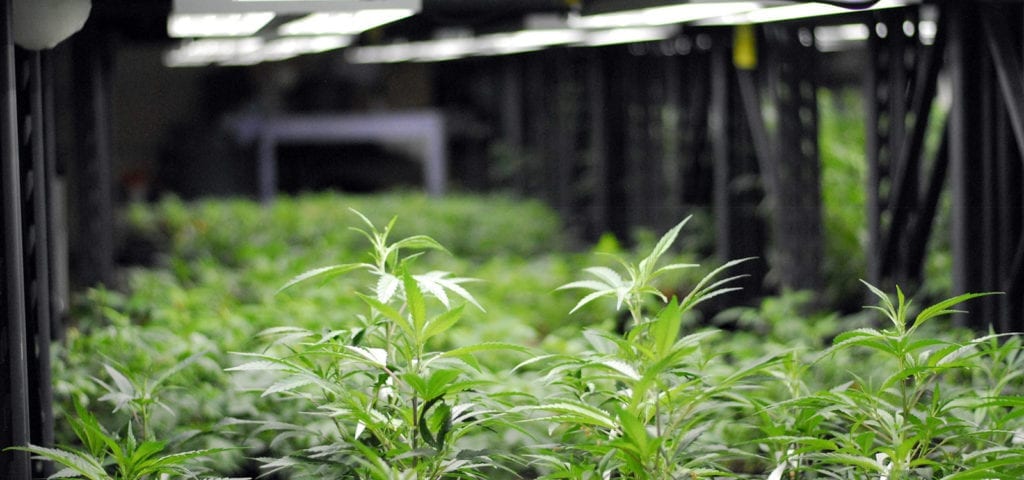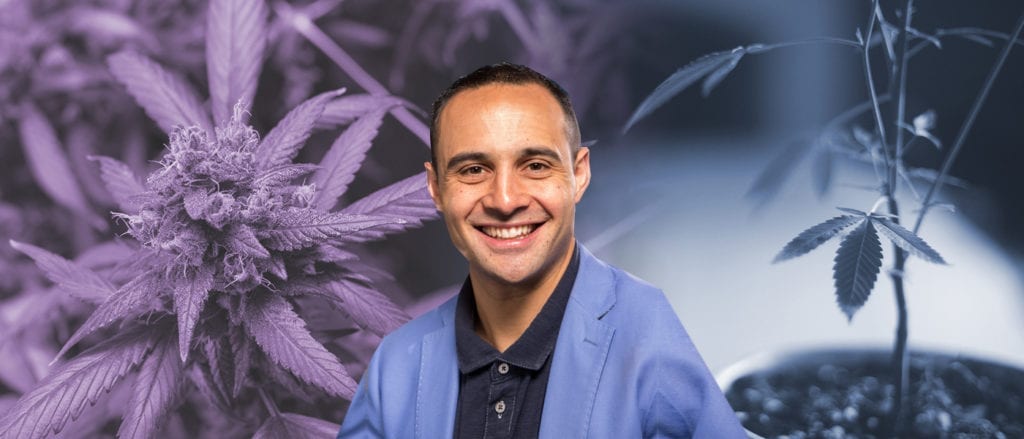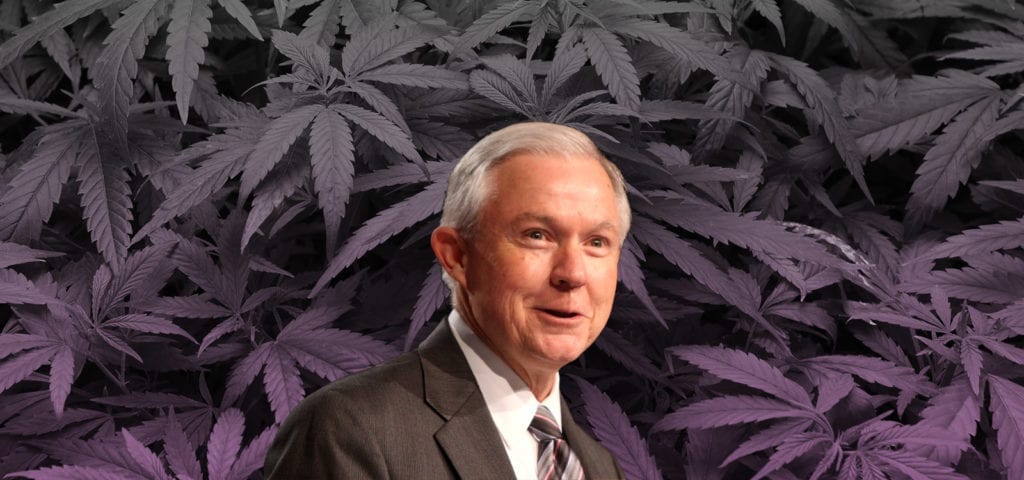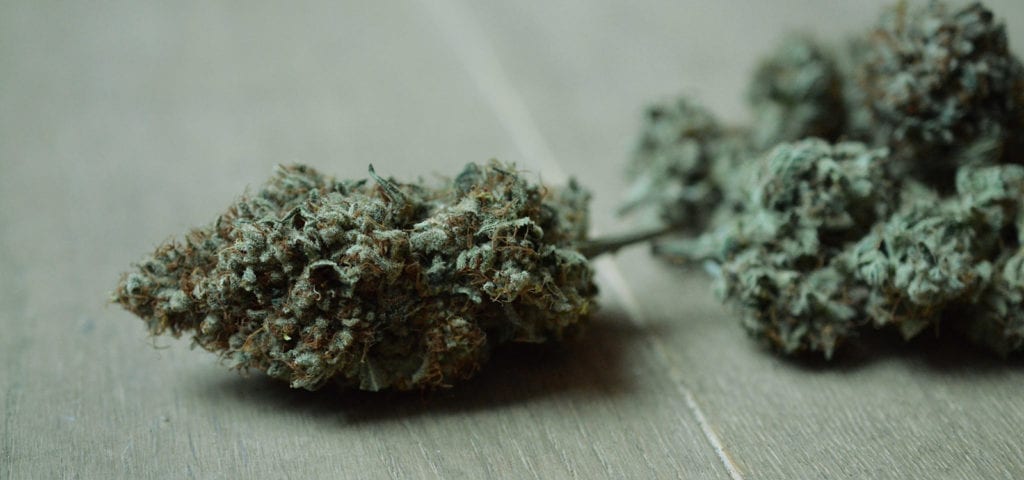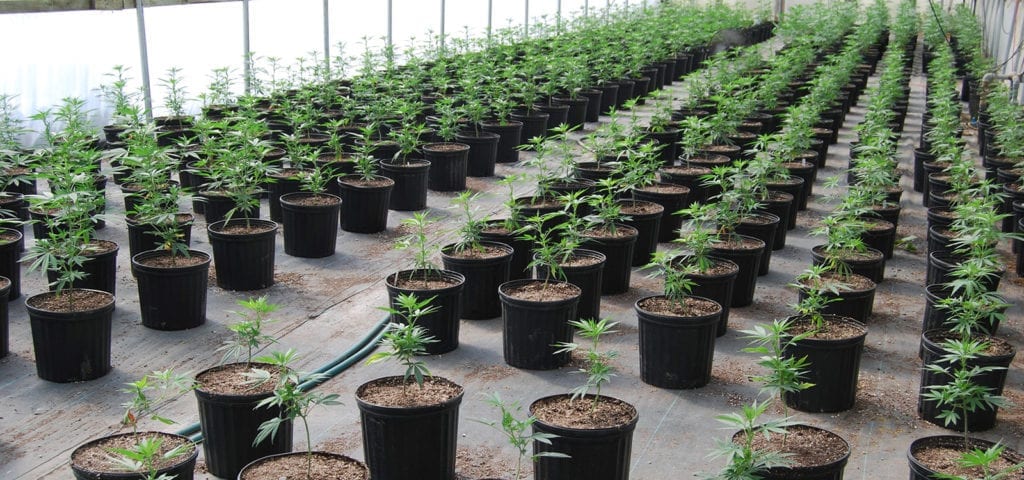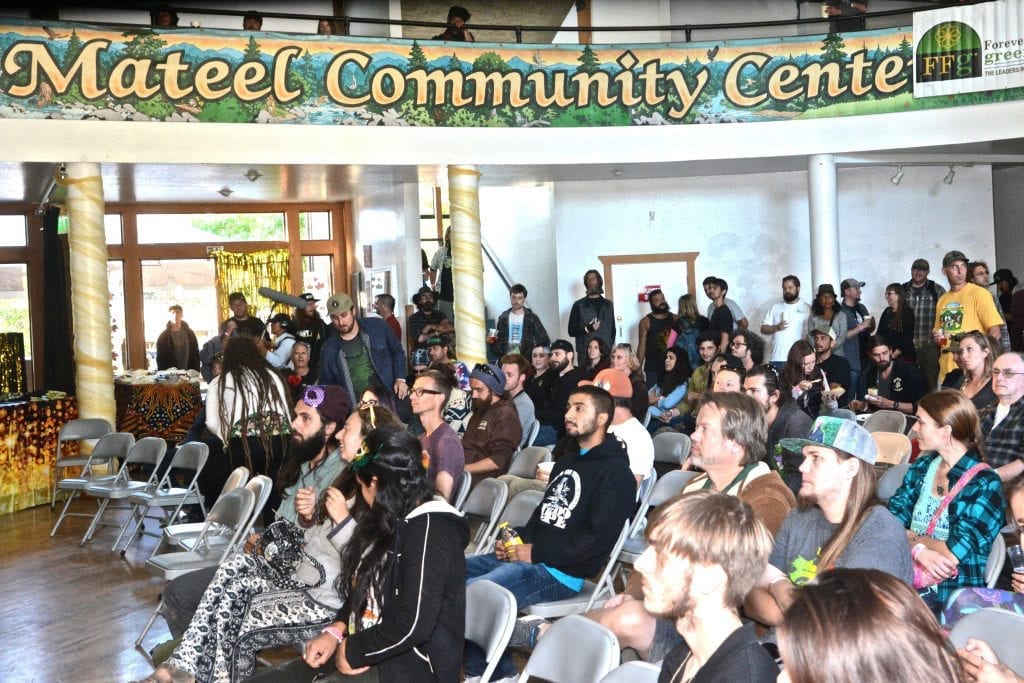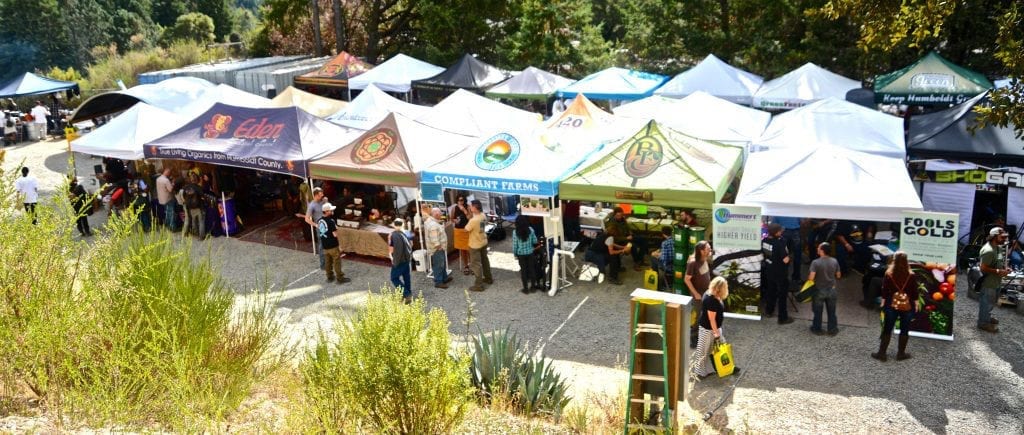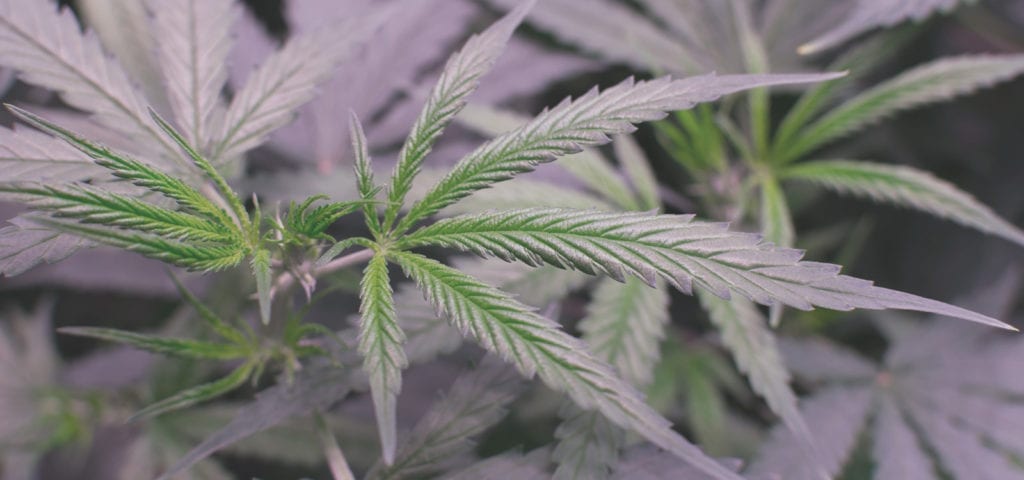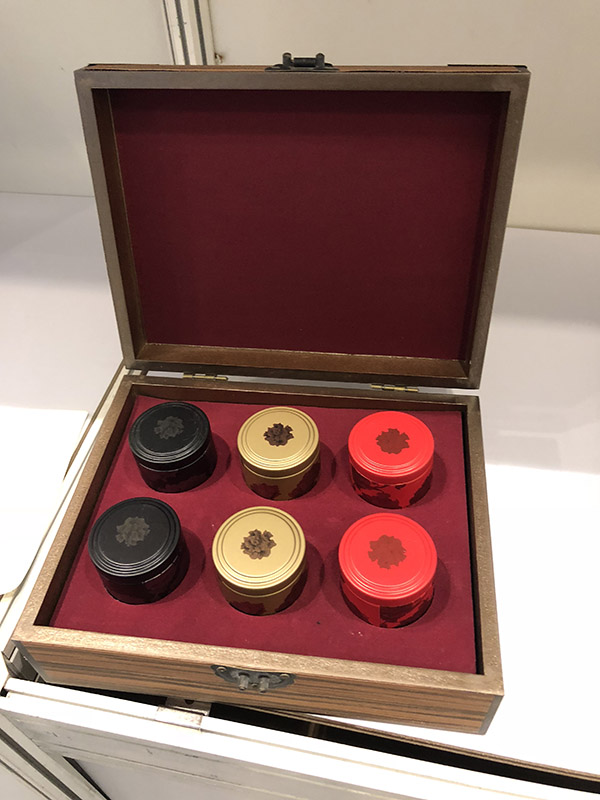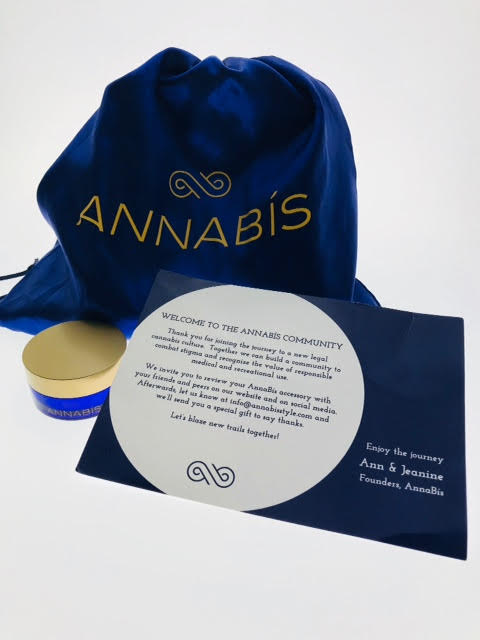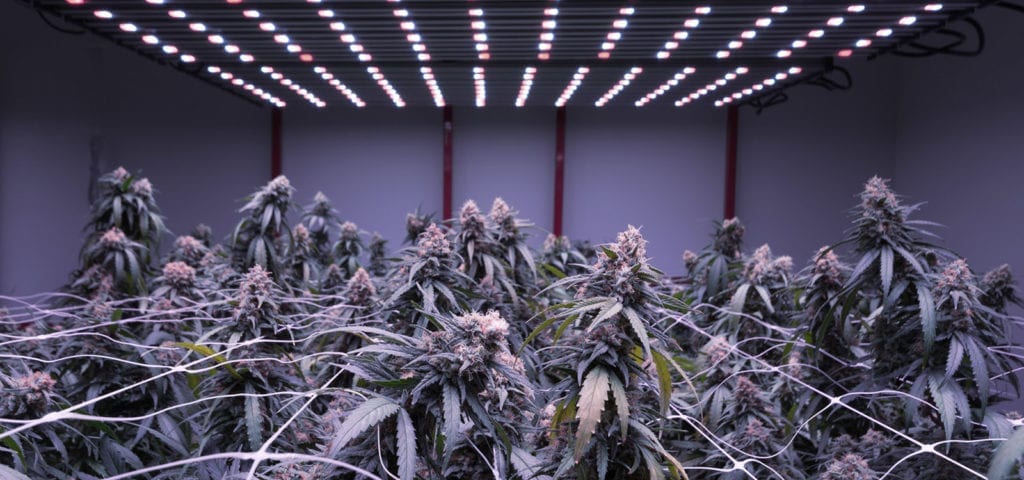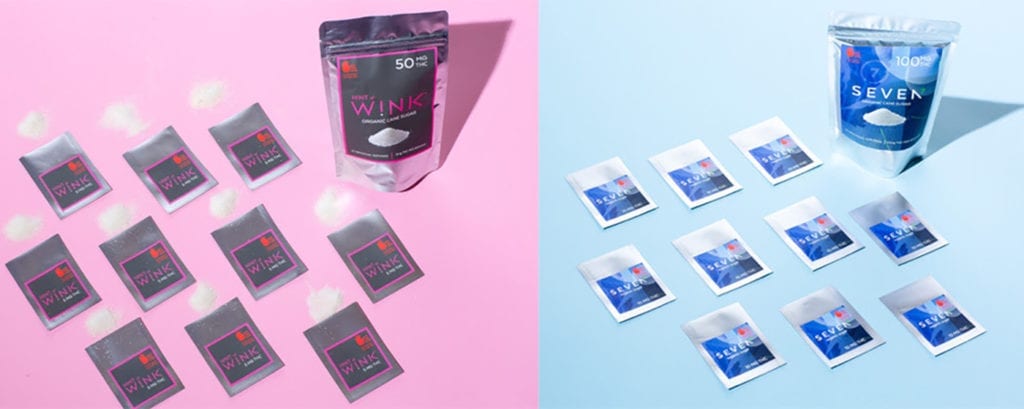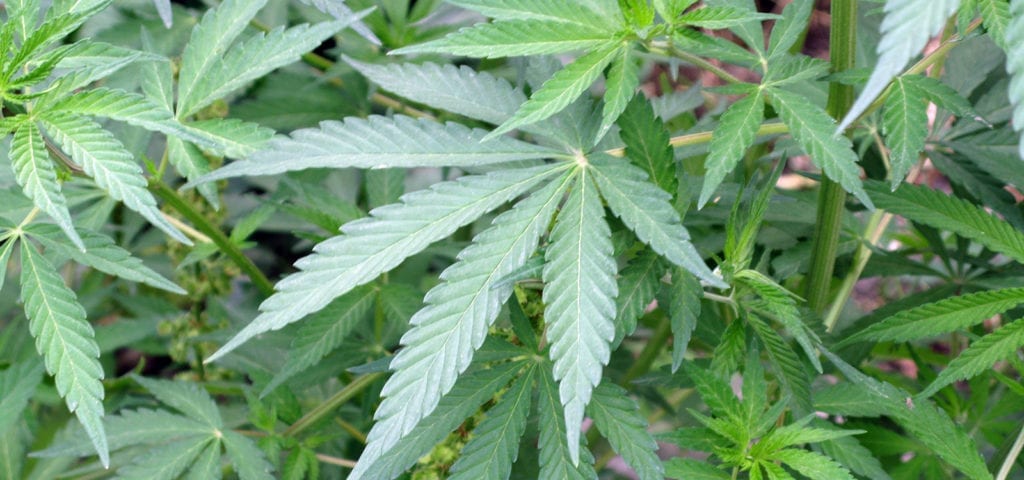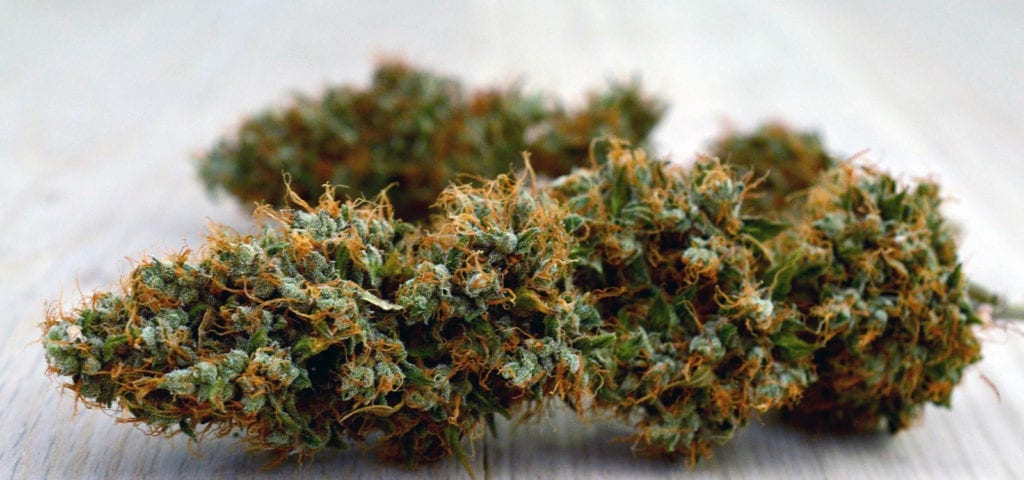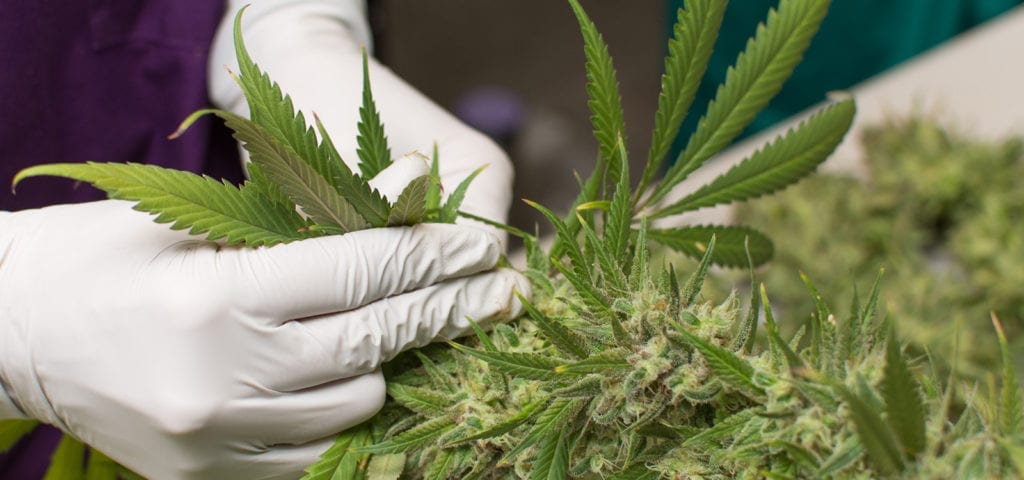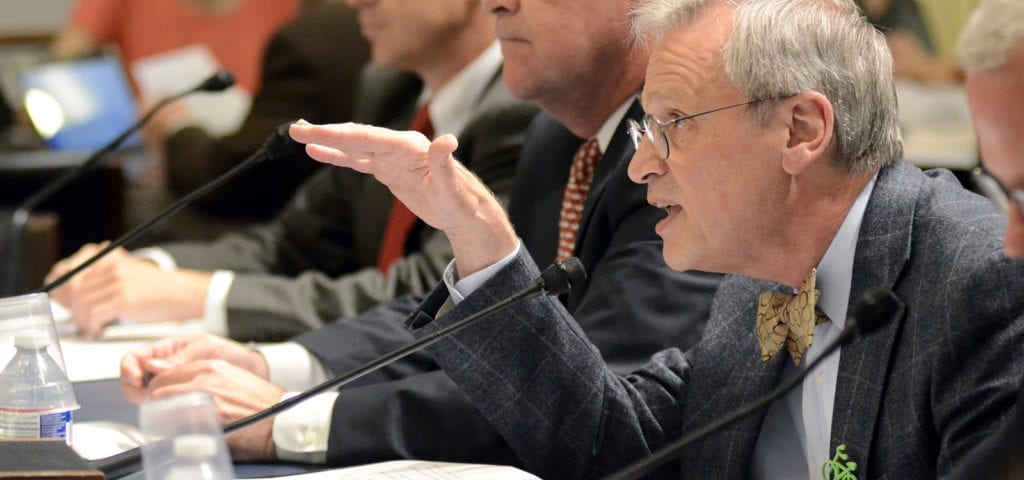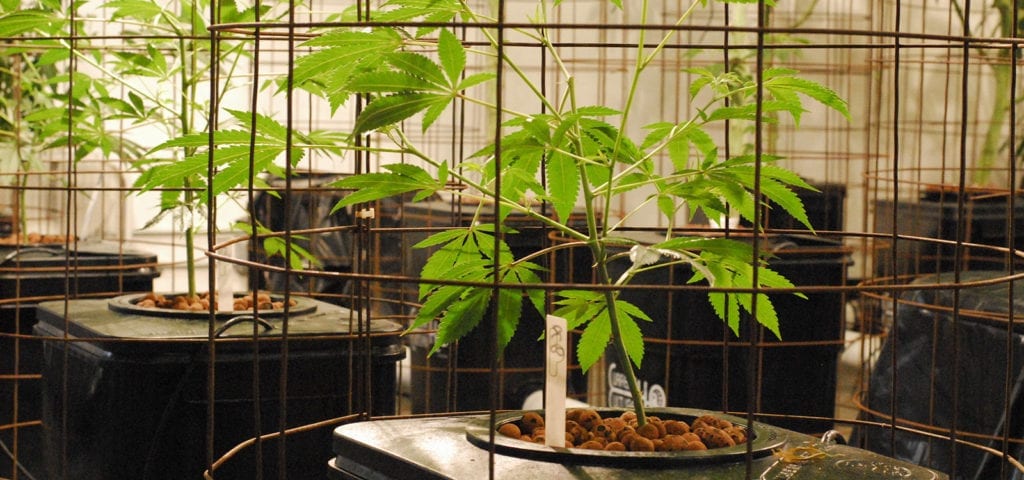Matt Rizzetta is the CEO of North 6th Agency, a public relations firm based in New York City and Toronto that serves cannabis and mainstream business clients nationwide.
In this episode of the Ganjapreneur.com podcast, Matt joins host TG Branfalt to talk about the mainstream media’s evolving perception of cannabis, public relations strategies for companies in the cannabis space, the differences and similarities of cannabis compared to other industries, how education is the key to overcoming the plant’s stigma, and more!
Listen to the interview below, or scroll down to read through a full transcript of the episode.
Listen to the podcast:
Read the transcript:
TG Branfalt: Hey there, I’m your host TG Branfalt and you’re listening to the Ganjapreneur.com podcast where we try to bring you actionable information and normalize cannabis through the stories of ganjapreneurs, activists and industry stakeholders. Today I’m joined by Matt Rizzetta. He’s the CEO of North 6th Agency, a public relations firm based in New York. We’re going to chat about something I’m pretty familiar with, the topic of public relations. How you doing this morning, Matt?
Matt Rizzetta: TG, I’m doing well. How are you doing?
TG Branfalt: I’m doing great, man. Before we get into what you guys do over there, tell me about yourself, man. How’d you get involved, first, in the PR industry and when did you decide to start providing PR services to cannabis industry operators?
Matt Rizzetta: Sure. Myself, first, I got out of school and took a job in-house with Sony BMG where I was doing a lot of the domestic marketing and PR for their international artists. I was doing that as my day job, was rushing home on the commuter train here in New York City to Westchester County, and then during the night hours I was representing athletes and trying to get them jobs overseas. My ambitions were really just to become a full-time agent once I had enough clients and enough revenue coming in from that side of the business to make that my full-time gig.
Those were my aspirations coming out of school. Quickly learned that life as a sports agent wasn’t all that it was cracked up to be, really liked my time at Sony working on the media side, and that’s when I committed to pursuing a career in PR, marketing, and media. Then fast forward about four or five years after that, got this crazy idea to start an agency of my own, N6A. Launched it out of my basement with a few technology clients without much to my name at the time, and here we are eight years later.
We have about 51 employees, we’re headquartered here in New York City, we have an office in Toronto, we work with about 70 clients spread across 30 different industries. We spun off our own dedicated cannabis division, which you mentioned, earlier this year, so we were one of the first mainstream agencies, if not the first mainstream agency in the country to spin off cannabis as its own dedicated division. That’s us as of 2017.
TG Branfalt: That’s an incredible story, man, and you’re a young guy. When you started this whole process, you were, what? 26?
Matt Rizzetta: Yeah. Just right before my 27th birthday. Baby on the way, we just closed on our first house. Wife went on maternity leave and we figured, what the hell, we might as well just get all of our life changes done at the same time.
TG Branfalt: Congratulations, man. It takes a lot to live your truth, man. It seems like you’re doing that. What drew you to the cannabis industry?
Matt Rizzetta: Well, by the time we took on our first cannabis client, TG, we were probably about five or six years old as a business at that time. We had scaled our business nicely. We were in about 20 different industries and we were starting to carve out a nice niche and reputation for ourself as an agency that was well connected with the national mainstream media here in New York. You started to see a lot of these cannabis brands that were used to working with niche specialized cannabis PR agencies now start to have an interest in elevating their brand to the next level in national mainstream media.
We were just well positioned at the time, as an agency here in New York, that was well-connected nationally. We took one or two clients on as a case study, test approach. This was back in late 2015 timeframe. Spent a lot of time learning about the industry, investing in the space, building out our media Rolodex, and really just educating ourselves. That’s how the whole thing got started. Then it was about 18 months after that initial phase, we found ourselves in a really unique position where we were very well connected within the national media when it came to cannabis.
Our Rolodex of clients and prospects was really strong. Our team was top-notch. We had Rob Vanisko, who now runs our cannabis crew, was doing a great job really learning the industry and had an interest in building a team out. We just felt January of this year, right place, right time, we had made the appropriate investments and we figured let’s double down on this. That’s the decision we made earlier this year and we haven’t looked back ever since.
TG Branfalt: What were some of the things that you needed to learn early on about this space?
Matt Rizzetta: Well, I’ll tell you, one thing when we … I flashed back to when we first got the thing started. First off, we saw a really unique opportunity, TG, when it came to the cannabis space. You talk about back in 2015, I know that sounds like it wasn’t too long ago, but in dog years, in cannabis that’s like an eternity ago. We saw an incredible opportunity where the mainstream media was very much just starting to cover the space and their opinions and their coverage beats were just starting to evolve. We found ourselves in a unique position where we could really help them craft their stories and craft their domain knowledge of cannabis before it got too popular.
In terms of what we needed to learn and what we needed to do, we just wanted to make sure we were surrounding ourselves with the right people, the right types of clients who were in cannabis for the right reasons, the right media contact who had just started to explore covering the cannabis industry on a mainstream national scale, and really just educating ourselves. Cannabis is incredibly fast paced. You have things changing every single day, not just from a regulatory standpoint, but from every way imaginable. At that time, it was really just about educating ourselves and doing it quickly before other agencies got up to speed.
TG Branfalt: Was there any concern when you started this project on the industry being risky or taboo in tarnishing your firm’s reputation?
Matt Rizzetta: Well, look, in terms of our firm’s reputation, we didn’t really have any concern from a reputation standpoint; however, in terms of the risk, absolutely. We were really concerned about the risk. It had nothing to do with reputation, but it had to do with the fact that it was going to require a lot of time, a lot of money to make the investment, to grow our cannabis division, and there really was no guarantee of any kind of return on that. Of course, we were concerned with the risk. Just like anything though, it’s all about risk tolerance and risk reward. We sat down and when we looked at the upside, look at the upside.
The upside at that time was for all the risk that came with it, what was the upside? We had a chance to be the first agency in the country to do something like this on a mainstream level. We could recruit and build a team from scratch. We could create a culture and brand for the N6A cannabis division that lived within N6A, that had its own identity, and personality, and really be at the forefront of, what we believed was, a once-in-a-generation opportunity. If that doesn’t get you going, then nothing will. We were totally aware and concerned by the risk that existed, but when you do a risk-reward and you look at the reward, look at the upside, and we made a strategic, what we believe was an intelligent, decision to make the leap in cannabis. It’s obviously worked out.
TG Branfalt: In an interview, you had said when you launched your agency and you were in the financial industry, they wanted to stay out of the news. Are you finding that to be the case with the cannabis industry due to the nature of their business?
Matt Rizzetta: No, in fact, the irony in that, TG, is we see cannabis brands with an interest in doing the opposite. They really want to focus on the two Es, as we’re seeing it at N6A. Number one is educate. They want to educate the media. They want to see their brands as educators of the mainstream media as the mainstream media is learning about cannabis and learning about trends within cannabis. Then the second E is elevate. They want to elevate their brand.
These brands that are engaging with agencies like ours, here at N6A, typically are brands that are pretty well known within cannabis niche industry circles, but now feel like it’s the right place and the right time to elevate their brand on a mainstream level and become national household brands. In general, that’s the trend we’re seeing among these cannabis clients. There’s a genuine, authentic interest and commitment to wanting to educate the media and there’s a genuine, and authentic, and sometimes commercial, obviously, interest in elevating their brand to become household names.
TG Branfalt: When you sat down with your team and you started identifying who you would target for your campaigns, how did you identify this target audience within the cannabis space?
Matt Rizzetta: Well, when it comes to identifying target audience within the cannabis space, it’s not … There’s a lot of similarities. We work, here at N6A, with clients across 30 some odd industries and I think there’s obviously a lot of differences between what cannabis clients are looking for and what our other clients in other industry verticals are looking for. When it comes to cannabis and when it comes to the target audience, I think there’s a lot of similarities. In general, they’re looking to communicate to a target audience that is going to see their brand as thought leaders and educators of their specific domain. In our cannabis portfolio, it’s within whatever vertical those clients are servicing within cannabis.
It could be cannabis from an HR recruiting standpoint, it could be cannabis from a media standpoint, consumer standpoint, financial standpoint. I think when it comes to identifying target audiences, it’s just who are they trying to educate? Are they trying to educate consumers? If so, we go heavy after the mainstream consumer media. Is it the investment community? If so, honestly, it’s going to be much more heavily focused on the financial trade publications, and the business magazines, and the business media and whatnot. If it’s HR recruiting, it’s much more about jobs and employment trade. In terms of how we identify their target audience, it’s not unlike what we do for other clients where it’s just understanding who they sell to or who they’re trying to influence, and then get to the influencers within the media that is consuming that media.
TG Branfalt: I want to talk to you a bit more about a statement that you made earlier about finding the right clients, but before we get to that, we’ve got to take a short break. This is the Ganjapreneur.com podcast, I’m TG Branfalt.
If you are looking for a job in the rapidly growing and highly competitive cannabis industry, Ganjapreneur.com is the place to look. Visit the Ganjapreneur job board today to visit current openings with cannabis companies throughout the United States, from entry-level budtender positions to executive level career opportunities. You can also create a profile and upload your resume to be discovered by cannabis recruiters. Visit our job board at jobs.Ganjapreneur.com to create your profile today.
If you are a business owner, you can post your job openings for as little as $25 on our job board to reach the largest and most engaged audience of cannabis professionals on the web. Companies who are listed in the Ganjapreneur business directory are eligible for free job listings. If you’re already signed up, contact us today via the website or send us an email at grow@Ganjapreneur.com to activate your unique coupon.
TG Branfalt: Hey, welcome back to the Ganjapreneur.com podcast. I’m your host, TG Branfalt. I’m here with Matt Rizzetta, CEO of N6A, or North 6th Agency, down in the Big Apple. Earlier you had mentioned talking about finding the right client. What types of businesses or people operating in this space are the right clients for you?
Matt Rizzetta: Great question, TG. For us, at N6A, finding the right clients within cannabis ultimately comes down to three things. Number one, we need a client that has to have a vision, a true vision, a clear vision, to elevate their brand on a mainstream level and become a household brand, because that’s why they’re engaging with us. They engaging with us typically to take the next step as a brand. If a brand wants to take the next step, they’re known as a niche cannabis company and now they want to become a household cannabis company and do that via the mainstream media, good fit. Check number one.
Number two, they need to have clear innovation and disruption within their sector in cannabis. We talked earlier about some of the cannabis sectors we represent. HR, recruiting, media, consumer, data, whatever it is. Whatever the sector is, if there’s a clear innovative and disruptive component to their product or their service offering, that obviously is of interest to us in terms of a good potential client match. Then number three, and I would say the most important thing is, the client really needs to buy in to N6A’s pillars.
Our pillars are three things. Speed, we work very fast. “Embrace the pace,” that’s our mantra and our motto. The client needs to be able to match our speed. They need to have an interest in doing things quickly, being able to match us minute for minute. Number two, data. We’re very data driven in terms of our ability to measure, so we want clients that are comfortable. We get rankings from them every month. We operate in the KPI environment, so we do look for clients that are comfortable with a level of holding their service providers accountable when it comes to data and KPIs.
Also, buying into the people and culture. N6A is a people first, culture first organization and we want clients that are good partners from us in that respect. They respect our team. Our team is incredibly hard working. Our cannabis crew with Rob, Lauren, Carrie and Allie, and obviously the Toronto team up in the Toronto office that services all the social media pieces of our cannabis clients. You want a good people match between the client and our team. I think those are the three things we’ll look at. They need to have a vision to elevate their brand, they need clear and innovative disruption within their service sectors in cannabis, and they need to buy in our pillars at N6A: speed, data and people.
TG Branfalt: I do want to just quickly sort of commend you on the team that you’ve put together. I deal with a couple members of your team and they’re far … There’s just something different about the way that they do business. When they contact me, and when they reach out to me, and when they pitch me ideas, it’s very welcoming. You don’t really feel like you’re dealing with a PR person so much as you feel like you’re dealing with a buddy sending you an email. You’ve definitely found some very innovative individuals to work on this innovative team that you’ve put together, so I do want to commend you for your work there.
What’s been proven to be the most effective way to get your cannabis clients’ message out?
Matt Rizzetta: Hey, TG, just real quick, I want to just go back to the team. I appreciate that kudos. I want to just tell you a quick story that reminds me of. I remember being in a café in SoHo, right here on Mercer Street. We were probably, I don’t know, about 18 months into working with cannabis clients at the time. This was like late 2016 and we were starting to put together our game plan for 2017.
I sat down with Rob Vanisko, who now runs our cannabis group, and we talked about the vision to spin off cannabis and create our own dedicated division. At that time, a big part of what we were talking about was recruiting. We want to go out and recruit the best talent that’s motivated for the right reasons, that’s committed to being a partner with clients and a partner with the media, and I think we recruited that way. A lot of what you talked about in regard to our team and your experience with them.
Obviously, I tip my hat to Rob, who runs our group. They’ve done a phenomenal job holding themselves to standards that are incredibly demanding. They have created their own really unique culture within N6A culture for cannabis. There’s a lot of pride in that group. They work their butts off and they do it the hard way and the right way. It all comes back to I remember sitting in a café in SoHo talking to Rob about how we’re going to recruit and those are the pillars and the values that we wanted to hold our team to. I think we’ve recruited that way.
TG Branfalt: It shows. It absolutely does. What’s proven to be the most effective way to get your cannabis client’s message out?
Matt Rizzetta: Well, look, it comes down to … The education first approach works in cannabis 99 times out of 100. Your head needs to be in the right place in terms of wanting to have a genuine, education first mindset to the media. You’ve got to remember, the media right now, at least at a mainstream level, for the most part is still very much in their infancy as far as learning about cannabis. They want to be educated, they want to be sponges, and they just want to learn as much as possible about cannabis so that their coverage beats can become as informative as possible for the folks who are consuming media.
I think on the PR side, if you’re representing a client, you need to mimic that. You need to take an education first mindset for your clients because that’s really what the media is craving. You’ve got the media craving to be educated and if you’re a PR agency, you need to represent clients that really see the value in becoming educators and having an education first mindset, because that’ll create incredible synergies between the demand in the media and the supply that the client can provide.
Then also, we see relationship centric approaches work very well in cannabis, again, as a byproduct of the industry just still being very nascent and in its infancy. Face-to-face time, I know some of your dealings with our team have been very personal and customized. I think that relationship first investment is working really well in cannabis. Those would be the two things I would look at in terms of the most effective ways to get cannabis clients out there in the press. Number one, take an education first approach, and, number two, commit and invest to cultivating relationships on a personal level with the media.
TG Branfalt: Well, the media might want to be sponges and even some companies like the Denver Post have created their own cannabis division, there’s still a lot of negative stigma around cannabis. Members of law enforcement, anti-drug organizations, some religious institutions, they don’t like it. How do you work to help dispel some of these notions that are really concrete with some population sectors?
Matt Rizzetta: Sure. Well, look, great question, TG. I would say, first of all, we’re not a lobbyist firm, right? Our interests are not aligned with any sort of government or legislative agenda. What do we do to sort of combat some of the issues on behalf of our clients that you talked about? Well, we do it by being honest, hard working, intelligent, taking on the right clients, giving the media access to the best minds in cannabis from a diverse set of cannabis sectors that can provide perspectives that are unique and different than what they’re used to hearing.
Then, ultimately, the judge and jury is the consumer. The judge and jury, let the consumer who’s reading the media, or watching the media, or listening to the podcast, ultimately, let them make the decision on how this fits into their own interests if they think it’s right or whatnot. All we can do, as an agency, is take on the right clients, take a really honest, hard working, and smart approach to it, and give the media access to an incredibly diverse set of perspectives, then let the general public form their own opinions from there.
TG Branfalt: Also, let’s talk briefly about crisis communications perspective. That negative stigma is going to make it a little bit harder when something happens with the industry or companies say a testing license producer has a tainted crop, right? This does happen. We see this a lot in Canada. We saw it a lot in Canada the last year. Because of that negative stigma, from a crisis communications perspective, is it harder to handle crises in this industry than it is more traditional industries?
Matt Rizzetta: I will say this, TG, when it comes to crisis comms, at N6A, we’re handling crisis comms across so many different industries. From the media perspective, we’re constantly commenting on a lot of high stakes brands that are in crisis with Uber and United. I can say that the main difference we’re seeing across the board when it comes to cannabis clients and their crisis situations is that it just kind of always feels like the stakes are a little bit higher when it comes to cannabis because it’s such a polarizing topic and also because it’s still so nascent and still very much evolving.
Every time there’s a crisis, the potential impact it has on the person who is being educated on the crisis, seems like it’s higher. It seems like it’s more important, it seems like it’s more impactful. The strategies are pretty transferable across industries. I don’t necessarily think we’re taking a different approach strategically when it comes to crisis comms for our cannabis clients than our other clients, but it just kind of always feels like the stakes are a little bit higher and you have to be a little bit more considerate and sensitive to the issues at hand, because it’s a lot more polarizing and it’s a first impression situation because, for the most part, the media is just hearing about that crisis for the first time.
TG Branfalt: I want to talk to you a bit more about some of the differences between the cannabis industry and other traditional industries, but before we do that, we’ve got to take our last break. This is Ganjapreneur.com podcast. I’m TG Branfalt.
At Ganjapreneur, we have heard from dozens of cannabis business owners who have encountered the issue of cannabias, which is when a mainstream business, whether a landlord, bank, or some other provider of vital business services, refuses to do business with them simply because of their association with cannabis. We have even heard stories of businesses being unable to provide health and life insurance for their employees because the insurance providers were too afraid to work with them.
We believe that this fear is totally unreasonable and that cannabis business owners deserve access to the same services and resources that other businesses are afforded. That they should be able to hire consultation to help them follow the letter of the law in their business endeavors and that they should be able to provide employee benefits without needing to compromise on the quality of coverage they can offer. This is why we created the Ganjapreneur.com Business Service Directory. A resource for cannabis professionals to find and connect with service providers who are cannabis friendly and who are actively seeking cannabis industry clients.
If you are considering hiring a business consultant, lawyer, accountant, web designer, or any other ancillary service for your business, go to Ganjapreneur.com/businesses to browse hundreds of agencies, firms, and organizations who support cannabis legalization and who want to help you grow your business. With so many options to choose from in each service category, you will be able to browse company profiles and do research on multiple companies in advance so you can find the provider who is the best fit for your particular need. Our Business Service Director is intended to be a useful and well-maintained resource, which is why we individually vet each listing that is submitted.
If you are a business service provider who wants to work with cannabis clients, you may be a good fit for our Service Directory. Go to Ganjapreneur.com/businesses to create your profile and start connecting with cannabis entrepreneurs today.
TG Branfalt: Welcome back to the Ganjapreneur.com podcast. I’m your host, TG Branfalt. I’m here with Matt Rizzetta, CEO of N6A, or North 6th Agency, a public relations firm. What is different about the cannabis space from more traditional businesses from a public relations perspective.
Matt Rizzetta: Well, I think, TG, the first thing that comes to mind is it’s a lot easier to go product first in your PR approach in traditional businesses; whereas, that rule doesn’t necessarily apply to cannabis. We were talking about this earlier, cannabis, for the most part, it should be an education first, product second approach because again the media is still learning and it’s all about making sure that you’re introducing them to the right people and you’re educating them as their coverage beats evolve. Cannabis, for the most part, is education first, product second when it comes to the media. Traditional businesses, it’s a lot easier to do product first, education second.
I would say, also, another observation in terms of cannabis versus traditional sectors, there’s a whole lot more opportunity when it comes to your potential in PR if you’re a cannabis business than traditional businesses because, again, it’s still nascent. The reporter that’s getting used to cannabis, chances are they only have a handful of sources right now and they need to 2x, 3x those sources, and there’s a finite window to do that over the next four to six months.
There’s a whole lot of opportunity and potential if you’re a cannabis client to capitalize on that; whereas, in traditional industries, from a PR perspective, you’ve reached saturation point in a lot of cases so introducing a client to the media, well chances are, that reporter, that producer, that podcast host, whoever it is, already has a deep Rolodex and a bench that’s really deep. You’re going to kind of have to fight to get on their radar. Cannabis, right now, is still evolving so a ton of opportunity, a ton of potential, when it comes to relationship building.
The other thing, too, is speed counts. Like speed counts in all businesses in PR, but speed really counts when it comes to cannabis because the cannabis landscape is changing every day, every second in some cases. As a brand, you’ve got to react really quickly to that. You have to be up to speed on regulatory and legislative topics. You have to be up to speed on statewide issues, nationwide issues. You have to be up to speed on consumer cannabis issues versus B2B cannabis issues. Speed counts. You’d better do that quickly, because if you don’t do that quickly, you’re going to miss out real fast.
TG Branfalt: Just talking to you, man, you’re working a mile a minute here. In order for anyone on your team to keep up with you, they really got to be fast.
Matt Rizzetta: Yeah. It’s no empty tagline, “embrace the pace,” I promise.
TG Branfalt: What’s your advice for companies who think that they might want or even require PR services?
Matt Rizzetta: Well, I would say if you’re a cannabis brand, you really need to look in the mirror and ask yourself, what are you looking for? Are you looking to take the next step as a brand and become a national household brand within cannabis? If the answer is yes, you want to get ahead of that. You want to start thinking about not just PR, but you want to be thinking about your brand, your marketing strategies, your promotional efforts, your messaging one step ahead of that as a national brand. Just like other national brands in industries outside of cannabis would.
Again, looking in the mirror, you might just want to stay within the cannabis niche and you might be very comfortable just continuing to own your domain as a niche specialized cannabis only industry vertical. If that’s the case, there’s nothing wrong with that, but you really need to look in the mirror and ask yourself, what do we want our brand to become? If we want to become national household mainstream, it’s time to start thinking national household mainstream in every regard. Advertising, marketing, media, the whole bit. If it’s more niche and more centralized, then continue to think about things from a cannabis industry perspective.
TG Branfalt: What’s your advice for entrepreneurs? Not just within the cannabis centric umbrella, but just entrepreneurs in general? You started your company quite young and it’s a competitive industry, especially in New York City. Can you give us some advice that you would have for people who might be in your position? Young and hungry?
Matt Rizzetta: Well, surround yourself with great people. Surround yourself not just with great people, but people who are better than you who certainly fill voids in your game that you have. That would be one. Another one, frankly, is be genuine. Be authentic. Speak to something. Stand for something. I think that’s really important. I think authenticity, as you scale a business, becomes a really important part of your cultural fabric and you can only scale if you stay true to your roots and you’re authentic at every step of the way. Hold yourself very accountable too. You need to understand that nobody is perfect and you need checks and balances along the way.
You need a really strong inner circle that’s going to keep you in check and tell you when you’re making mistakes. You’re going to have to hold yourself very accountable and make sure that you don’t make those same mistakes twice. I think you want to be experimental. At N6A we do things in a very experimental fashion. I encourage my folks to go out there and to experiment. To go run tests, don’t be afraid to push the envelope and roll the dice. As long as you’re not stupid of your assessment of those experiments, you’ll find your game really improving at every step of the way if you do that.
You’re going to get a lot of experiments that work. The stuff that works, invest in, double down on those, really make those a part of the fabric of your culture as you scale to the next level. Then all of the stupid experiments you did that didn’t work, well, don’t be an idiot about those. Hold yourself accountable and make sure that you’re not doing those same experiments twice. TG, I look at our business eight years later and it’s just a manifestation of eight years of a lot of learning lessons, a lot of experiments, some of which have failed, some of which have succeeded that we’ve doubled down on. I look forward to the future of just continuing to learn, continuing to improve and get better year in and year out.
TG Branfalt: Well, I want to just congratulate you on all your success thus far and for having the foresight to recognize that cannabis is a legitimate industry that deserves legitimate professional firms such as yours. I applaud your efforts to that end. Where can people find out more about you, what you do, the agency?
Matt Rizzetta: They can check us out, our corporate website, TG, is N6A.com. They can go to competeandcare.com, which is our recruiting portal, it goes over all of our value system and our culture here at N6A and a bunch of our cool perks and competitions. If people have questions specific to our N6A cannabis division, they can send an email to cannabis@N6A.com and someone will reach out to them. From a recruiting standpoint, we’re always looking, specifically within the cannabis crew here at N6A, for great talent and talent that’s motivated by what’s going on in cannabis right now and the opportunity to be a part of a team that’s creating something special. We believe it’s a once in a lifetime opportunity.
I wish I was able to live through PR and media in the early nineties when the .com boom was happening. I was young, I was in fourth grade or so at the time, so this is kind of our way or my way of getting a second chance or a first chance, I guess, of being a part of something at the ground level that’s exciting, that’s taking off, that’s a once in a lifetime opportunity. Cannabis media and mainstream media in 2017, it’s a lot of fun. Your listeners should reach out to us at cannabis@N6A.com if they want to be a part of that.
TG Branfalt: Matt, I want to thank you for coming on this show, taking the time. This has been really a cool conversation for me to have. I have a master’s degree in communications, public relations, journalism, so this is one of the first opportunities I’ve had to really talk to somebody about where what I do now and what I went to school for collide. I really appreciate you taking the time out, man.
Matt Rizzetta: No, likewise. The feeling is mutual. We really appreciate the relationship with you, TG, and look forward to continuing to work together.
TG Branfalt: You can find more episodes at the Ganjapreneur.com podcast and the podcast section of Ganjapreneur.com and in the Apple iTunes store. On the Ganjapreneur.com website you will find the latest cannabis news and cannabis jobs updated daily along with transcripts of this podcast. You can also download the Ganjapreneur.com app in iTunes and Google Play. I’ve been your host, TG Branfalt.

